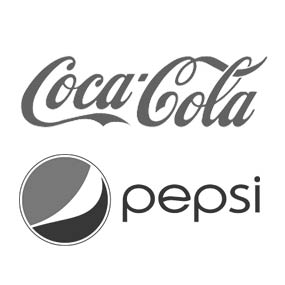The cola wars benefiting the post-secondary education marketplace
His experience as Coca-Cola’s general manager for the 1988 Calgary Winter Olympics earned Spectrum Marketing President Dale Boniface an intimate knowledge of the beverage industry. He learned of the power of the world’s top soft drink brands and their parent companies’ insatiable thirst to secure consumer loyalty. He then used his vision, ingenuity and entrepreneurial spirit to leverage competition in the marketplace for the benefit of his public sector clients.
 At the time, most post secondary institutions in North America had non-exclusive beverage contracts on campuses — you might find Pepsi products in the Student Union Building, Coca-Cola in the athletics facilities, and a mixture of cold beverage products in campus vending machines. Spectrum Marketing recognized that the ‘whole is far greater than the sum of its parts’, especially in the soft drink market. The company developed a unique process to align all stakeholders within an institution, and to ensure that exclusivity to a soft drink supplier was deliverable. This enabled the institution to negotiate exclusive, long-term and highly lucrative pouring rights agreements.
At the time, most post secondary institutions in North America had non-exclusive beverage contracts on campuses — you might find Pepsi products in the Student Union Building, Coca-Cola in the athletics facilities, and a mixture of cold beverage products in campus vending machines. Spectrum Marketing recognized that the ‘whole is far greater than the sum of its parts’, especially in the soft drink market. The company developed a unique process to align all stakeholders within an institution, and to ensure that exclusivity to a soft drink supplier was deliverable. This enabled the institution to negotiate exclusive, long-term and highly lucrative pouring rights agreements.
STRATEGY
Facilitating exclusive pouring rights agreements for large institutions with diverse and often competing agendas is a complex process. Achieving buy-in from all stakeholders before entering any negotiations with the beverage manufacturers is critical.
Spectrum understood this reality and developed detailed and creative strategies to ensure that all parties within the institution — from the student association to athletics to the purchasing department — recognized the potential benefits of an exclusive agreement with one of the big two soft drink producers. This entailed considerable education, assurances and trust that all stakeholders will be made ‘whole’ as part of the exclusive campus-wide agreement.
Once all internal partners were onside, Spectrum worked with its clients to negotiate these long-term exclusive pouring rights agreements. These relationships generally generated six to 30 times more in guaranteed revenues than the institutions enjoyed under non-exclusive agreements.
At the same time, the soft drink companies’ interest and enthusiasm about the concept and opportunities that exclusivity provides on campus, from both a sales and activation standpoint, were critical. Both Coca-Cola and Pepsi are considered integral partners on campus throughout the life of an exclusive pouring rights agreement, often contributing further to student life through scholarships, employment and other benefits.
Spectrum and the beverage companies knew that most consumers have deep-seated, lifelong passionate allegiances when it comes to their beverage of choice. University-aged consumers are a prime target for developing brand affinity and establishing a strong loyalty base, making exclusive beverage agreements a win-win for all parties.

RESULTS
Spectrum Marketing has helped its Canadian and US post secondary institutional partners in North America raise hundreds of millions of dollars through exclusive pouring rights agreements. In the process, Spectrum has become the undisputed leader in this area and created a unique model whereby institutions can use a similar strategy to harness industry competition in other sectors, such as banking, infinity cards, and telecommunications.
Spectrum has delivered on everything they said they would. The quality of work is first rate, their level of knowledge is extremely high, and I have no reservation whatsoever in recommending Spectrum to any North American institution…”
Roger Trull – Former Vice President, University Advancement, McMaster University